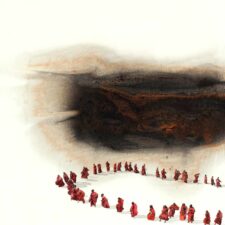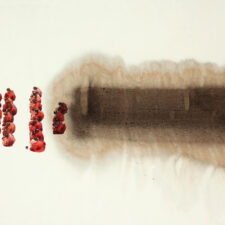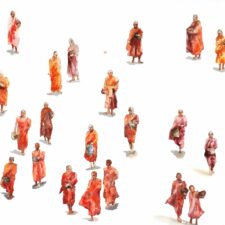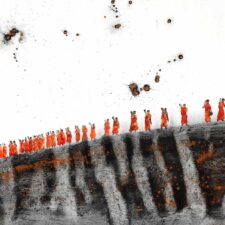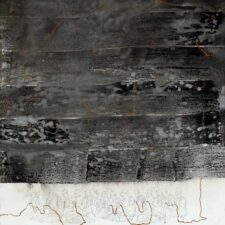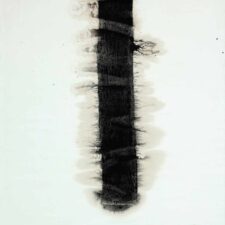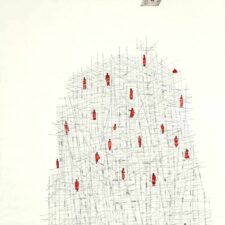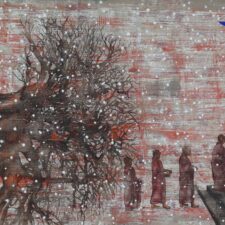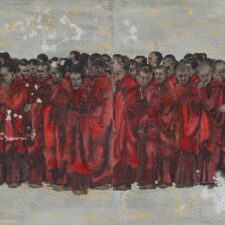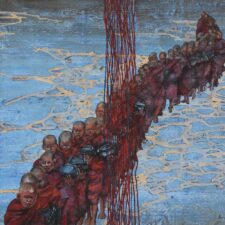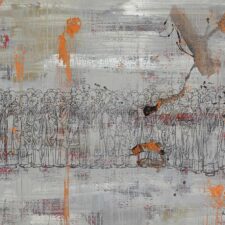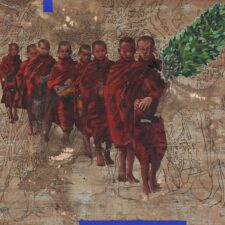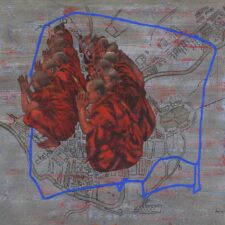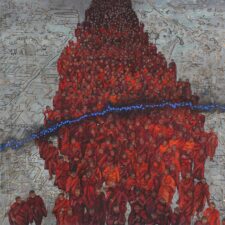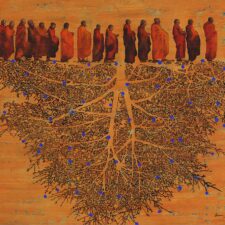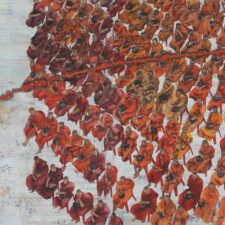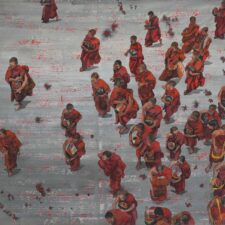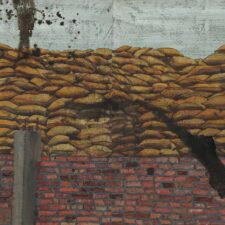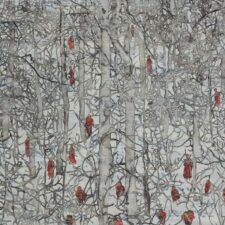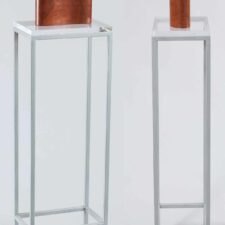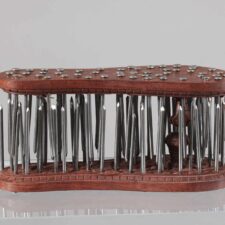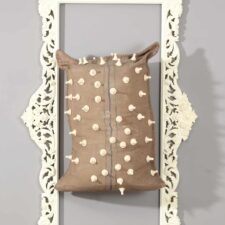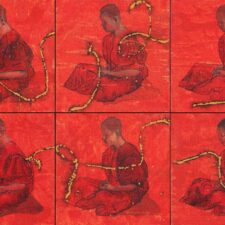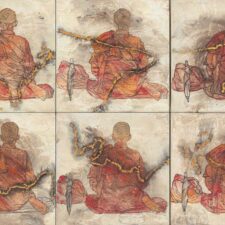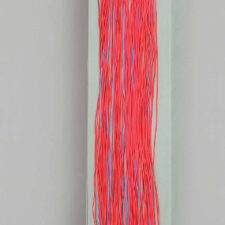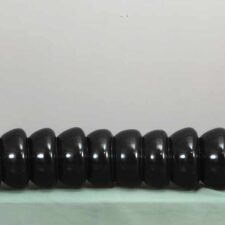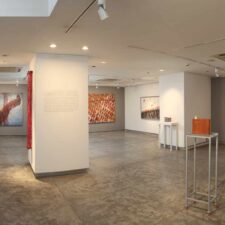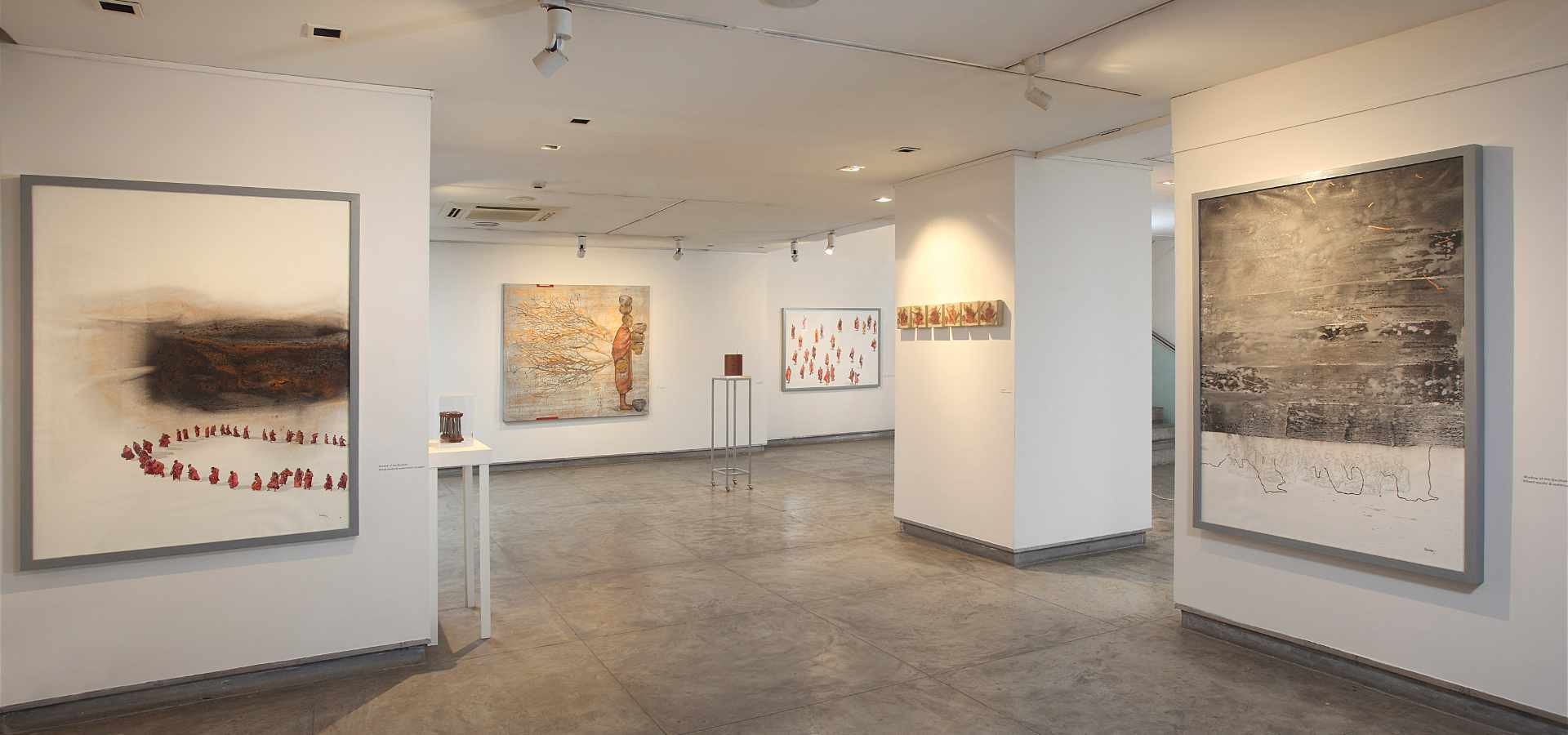
Limning Heterotopias
A Journey into G.R. Iranna’s Shadows of the In-Between
Gallery Espace is pleased to announce G.R. Iranna’s latest solo exhibition, “Limning Heterotopias”, opening with a preview on March 10, at 6:30 p.m. and running until April 15, 2012. The exhibition features Iranna’s newest body of works, including paintings on canvas, watercolours, sculptures, and an essay by international art critic Maya Kóvskaya.
These works are an extension of the artist’s ongoing visual meditations on the ephemeral, illusory, and indeterminate significance of human existence, as well as his enduring preoccupation with existential questions about the “collective solitude” of faith and its frailty, the vicissitudes of spiritual journeys, and the fraught location of belief in quotidian life.
“I see myself there where I am not, in an unreal, virtual space that opens up behind the surface; I am over there, there where I am not, a sort of shadow that gives my own visibility to myself, that enables me to see myself…”[1]
– Michel Foucault
Buddhist monks figure prominently in these works, as do the wooden “spiritual journey” sandals of religious pilgrims, monks, fakirs, and sadhus, and their bowls for begging alms. As with Iranna’s earlier works, however, religious figures and iconography function as metaphors for larger human questions, rather than representation of particular religions, per se.
Whether using his trademark “splotched surfaces” to offer an entry point beyond the spatio-temporal manifestation of images on the canvas, or his characteristically absent backgrounds, or his palimpsest layering of trace outlines, such as tree roots and branches or schematized cityscapes, and human figures, Iranna’s visual language turns on the creation of what philosopher Michel Foucault called “heterotopias — the intersections between real and virtual spaces” that function as interstitial vectors allowing us to see ourselves in the “unreal, virtual space that opens up behind the surface.” Iconically resembling a mirror, bridge, or boat, a heterotopic space “is a floating piece of space, a place without a place”[2] that is contained within itself. Subsisting on the margins of society in a self-contained, ritualistic space constituted by shared notions of birth, death, life and transcendence, the Buddhist monk is a self-peripheralized being—a quintessential heterotopic subject.
In Iranna’s sculpture works, the rubber nipples protruding from an ornately framed bag of grains; the “veins and arteries” red and blue electrical wiring connecting wooden sandals; and the intersection of iron nails in the sandals of the fakir, all embody a heterotopic “in-between” of connectivity that simultaneously contains separation—the cycles of need and nurture, life and death, intake of sustenance and excretion of waste, or the tenuous space between the bequests of the alms beggar and the blessings he bestows.
To ‘limn’ something is not merely to ‘depict in painting or words,’ or to ‘highlight’ or ‘outline a form,’ it is also ‘to draw a line’ that functions as a heterotopic space between being and perception. G.R. Iranna’s new works do just this: limning heterotopias, they take us on a journey into the liminal space of thresholds, and ask us to go beyond the surface of the canvas and find ourselves in the shadows of the “in-between.”
Maya Kóvskaya, PhD
[2] Ibid, p27.
